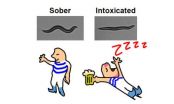(Press-News.org) This is the first study to investigate cerebral palsy over such a broad range of family relationships.
Cerebral palsy is the most common cause of physical disability in children, affecting approximately two in 1,000 live births in the developed world (and many more elsewhere). It originates from damage to the 'immature' brain and several risk factors in pregnancy have been identified such as preterm delivery, abnormal growth, exposure to infection and lack of oxygen at birth.
Previous studies have found a possible family link with cerebral palsy, but positive findings have been hard to replicate. So researchers from Norway set out to investigate recurrence of cerebral palsy among twins and first, second, and third degree relatives to shed light on patterns of inheritance.
The study involved 1,991,625 single births and 45,116 twins born in Norway between 1967 and 2002.
Using national registries and linkages among families, they identified 3,649 cases of cerebral palsy among two million births. The prevalence of cerebral palsy was 1.8 per 1,000 for children born during 1967-2002. The rate was higher in twins (5.1 per 1,000) than in singletons (1.7 per 1,000).
The highest risk was seen in co-twins of affected children. If one twin had cerebral palsy, the relative risk of recurrence of cerebral palsy was 15 times higher in the other twin.
In families with an affected single child, there was a six to ninefold increased risk in a subsequent full sibling (first degree relatives) and up to a threefold increased risk in a half sibling (second degree relatives).
These increased risks were independent of sex and persisted after excluding preterm births (an important risk factor for cerebral palsy).
Affected parents carried a 6.5 times increased risk of having an affected child compared with unaffected parents. However, for people with an affected first cousin (third degree relatives), only weak evidence existed for an increased (1.5-fold) risk.
"Our data suggest that cerebral palsy includes a genetic component, with a stronger recurrence among relatives with closer genetic relationship," say the researchers, and that the underlying causes of the condition "extend beyond the clinical management of delivery."
However, they suggest that genetic influences are only part of a wide range of causes, and that future studies "should consider the possibility of genetic causes as well as genetic susceptibility to environmental causes."
In an accompanying editorial, leading paediatrician Professor Peter Rosenbaum says parents rightly want to know why their child has serious neurological impairments, whether something they did caused their child's problems, and whether the same problems may recur in later children or grandchildren.
He acknowledges that the search for the causes of cerebral palsy is "far from over" but points out that even family members with a 15-fold increase in risk of recurrence have a small absolute risk of cerebral palsy. "This information should provide some reassurance to families in which cerebral palsy is already present," he concludes.
INFORMATION: END
Underlying cause of cerebral palsy could lie in family links
Relatives including first cousins could be at risk
2014-07-16
ELSE PRESS RELEASES FROM THIS DATE:
Is it time to lock up those who commit research fraud?
2014-07-16
Dr Zulfiqar Bhutta, Robert Harding Chair in global child health and policy and Co-Director of the Centre for Global Child Health at the Hospital for Sick Children, Toronto believes that criminal sanctions are necessary to deter growing research misconduct.
He says the fact that research fraud is common is no longer news, but a review by PubMed in 2012 found that 67% of research article retractions were "attributable to scientific misconduct, including fraud or suspected fraud".
Dr Bhutta says the consequences of research fraud on human health can be "huge" and that ...
Mutation stops worms from getting drunk
2014-07-16
Neuroscientists at The University of Texas at Austin have generated mutant worms that do not get intoxicated by alcohol, a result that could lead to new drugs to treat the symptoms of people going through alcohol withdrawal.
The scientists accomplished this feat by inserting a modified human alcohol target into the worms, as reported this week in The Journal of Neuroscience.
"This is the first example of altering a human alcohol target to prevent intoxication in an animal," says corresponding author, Jon Pierce-Shimomura, assistant professor in the university's College ...
Rainwater discovered at new depths
2014-07-16
University of Southampton researchers have found that rainwater can penetrate below the Earth's fractured upper crust, which could have major implications for our understanding of earthquakes and the generation of valuable mineral deposits.
It had been thought that surface water could not penetrate the ductile crust - where temperatures of more than 300°C and high pressures cause rocks to flex and flow rather than fracture - but researchers, led by Southampton's Dr Catriona Menzies, have now found fluids derived from rainwater at these levels.
Fluids in the Earth's crust ...
Transplantation of new brain cells reverses memory loss in Alzheimer's disease model
2014-07-16
SAN FRANCISCO, CA—A new study from the Gladstone Institutes has revealed a way to alleviate the learning and memory deficits caused by apoE4, the most important genetic risk factor for Alzheimer's disease, improving cognition to normal levels in aged mice.
In the study, which was conducted in collaboration with researchers at UC San Francisco and published today in the Journal of Neuroscience, scientists transplanted inhibitory neuron progenitors—early-stage brain cells that have the capacity to develop into mature inhibitory neurons—into two mouse models of Alzheimer's ...
JAMA study: Stroke risk and death rates fall over past 2 decades
2014-07-15
Fewer Americans are having strokes and those who do have a lower risk of dying from them finds a new study led by Johns Hopkins Bloomberg School of Public Health researchers.
The study found a 24 percent overall decline in first-time strokes in each of the last two decades and a 20 percent overall drop per decade in deaths after stroke. However, the decline in stroke risk was concentrated mainly in the over-65 set, with little progress in reducing the risk of strokes among young people. In contrast, the drop in stroke-related deaths each decade was primarily found among ...
Physicians struggle to clinically diagnose early HIV infection
2014-07-15
Despite the belief that early HIV infection presents with a well recognized flu-like syndrome, most physicians are unable to use clinical skills to differentiate those who should and should not be tested for HIV infection, according to a study published July 15 in Journal of the American Medical Association (JAMA).
Researchers at the BC Centre for Excellence in HIV/AIDS and University of British Columbia, Oregon Health and Science University, and Duke University Medical Centre analyzed data from over 24,000 patients, and discovered physicians have great difficulty recognizing ...
Study finds decrease in incidence of stroke, subsequent death
2014-07-15
In a study that included a large sample of black and white U.S. adults from several communities, rates of stroke incidence and subsequent death decreased from 1987 to 2011, with decreases varying across age-groups, according to a study in the July 16 issue of JAMA.
Stroke ranks fourth among all causes of death in the U.S. and is recognized as a leading cause of serious physical and cognitive long-term disability in adults. Almost 800,000 Americans suffer a stroke each year, and over 600,000 of them are first-ever events. Stroke incidence varies by gender and ethnic group, ...
Telecare intervention improves chronic pain
2014-07-15
A telephone-delivered intervention, which included automated symptom monitoring, produced clinically meaningful improvements in chronic musculoskeletal pain compared to usual care, according to a study in the July 16 issue of JAMA.
Pain is the most common symptom reported both in the general population and patients seen in primary care, the leading cause of work disability, and a condition that costs the United States more than $600 billion each year in health care and lost productivity. Musculoskeletal pain accounts for nearly 70 million outpatient visits annually in ...
History of stroke linked with increased risk of adverse outcomes after non-cardiac surgery
2014-07-15
In an analysis that included more than 480,000 patients who underwent elective noncardiac surgery, a history of stroke was associated with an increased risk of major adverse cardiovascular events and death, particularly if time elapsed between stroke and surgery was less than 9 months, according to a study in the July 16 issue of JAMA.
Noncardiac surgeries performed in patients with a recent heart attack or stent implantation have been associated with increased risk of perioperative cardiac events, as well as stent thrombosis (blood clot), and bleeding compared with ...
Physicians have higher rate of organ donation registration than general public
2014-07-15
A study that included about 15,000 physicians found that they were more likely to be registered as an organ donor compared to the general public, according to a study in the July 16 issue of JAMA.
A shortage of organs for transplant has prompted many countries to encourage citizens to register ("opt in") to donate their organs and tissues when they die. However, less than 40 percent of the public is registered for organ donation in most countries with a registry. "One common fear is that physicians will not take all measures to save the life of a registered citizen at ...
LAST 30 PRESS RELEASES:
Duke-NUS scientists identify more effective way to detect poultry viruses in live markets
Low-intensity treadmill exercise preconditioning mitigates post-stroke injury in mouse models
How moss helped solve a grave-robbing mystery
How much sleep do teens get? Six-seven hours.
Patients regain weight rapidly after stopping weight loss drugs – but still keep off a quarter of weight lost
GLP-1 diabetes drugs linked to reduced risk of addiction and substance-related death
Councils face industry legal threats for campaigns warning against wood burning stoves
GLP-1 medications get at the heart of addiction: study
Global trauma study highlights shared learning as interest in whole blood resurges
Almost a third of Gen Z men agree a wife should obey her husband
Trapping light on thermal photodetectors shatters speed records
New review highlights the future of tubular solid oxide fuel cells for clean energy systems
Pig farm ammonia pollution may indirectly accelerate climate warming, new study finds
Modified biochar helps compost retain nitrogen and build richer soil organic matter
First gene regulation clinical trials for epilepsy show promising results
Life-changing drug identified for children with rare epilepsy
Husker researchers collaborate to explore fear of spiders
Mayo Clinic researchers discover hidden brain map that may improve epilepsy care
NYCST announces Round 2 Awards for space technology projects
How the Dobbs decision and abortion restrictions changed where medical students apply to residency programs
Microwave frying can help lower oil content for healthier French fries
In MS, wearable sensors may help identify people at risk of worsening disability
Study: Football associated with nearly one in five brain injuries in youth sports
Machine-learning immune-system analysis study may hold clues to personalized medicine
A promising potential therapeutic strategy for Rett syndrome
How time changes impact public sentiment in the U.S.
Analysis of charred food in pot reveals that prehistoric Europeans had surprisingly complex cuisines
As a whole, LGB+ workers in the NHS do not experience pay gaps compared to their heterosexual colleagues
How cocaine rewires the brain to drive relapse
Mosquito monitoring through sound - implications for AI species recognition
[Press-News.org] Underlying cause of cerebral palsy could lie in family linksRelatives including first cousins could be at risk

